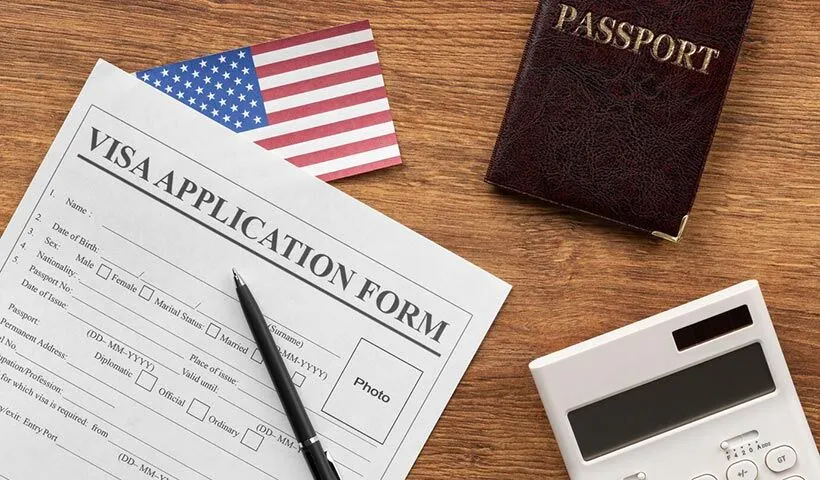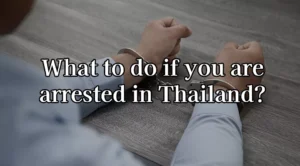For Thai citizens dreaming of new experiences in the United States, navigating the world of U.S. visas is the first step. This journey often begins with a mix of excitement and uncertainty, as the process involves various types of US Visa for Thailand. Each with its own set of rules and procedures.
This guide offers a clear and easy-to-understand overview of the different U.S. visas that Thai citizens can apply for, including tourist, student, work, and immigrant visas. We also provide insights into the application steps for each visa type, helping you to prepare effectively for your application. This guide is designed to be your companion in making informed decisions about your U.S. travel plans, ensuring you choose the visa that best fits your purpose and requirements.
1. Tourist and Business Visas (B1/B2)
The B1/B2 visa serves as a gateway for Thai citizens planning trips to the U.S. for tourism, business meetings, or medical treatment. This visa type is ideal for those wishing to explore the diverse landscapes and cultures of the U.S., engage in business discussions, or seek medical attention from American healthcare facilities.
- To begin, applicants need to fill out the DS-160 form online.
- Following this, the applicant is required to pay the visa fee.
- The next step involves scheduling an interview in the U.S. Embassy in Bangkok or the Consulate in Chiang Mai. Here, applicants will need to present themselves in front of their interviewer and share their travel plans.
- It’s important to bring all necessary documents to this interview, including passport, proof of financial stability, and any other documents that support the purpose of the visit.
2. Student Visas (F1, M1)
F1 visas are designed for Thai students pursuing academic studies in U.S. colleges, while M1 visas are for those interested in vocational courses.
- The first step for both visas is gaining admission to a U.S. educational institution.
- Students then receive the Form I-20, which needs to be filled out for the visa application.
- The process then involves completing the DS-160 form online and paying the visa fee.
- Applicants then need to attend an interview in the U.S. Embassy or Consulate.
- During the interview, students discuss their study plans and financial arrangements.
3. Work Visas (H1B, L1, O1, etc.)
Work visas such as H1B for specialty occupations, L1 for intra-company transfers, and O1 for individuals with extraordinary abilities, are essential for Thai professionals seeking employment in the U.S.
- These visas require a U.S. employer to sponsor the applicant by filing a petition with the U.S. Citizenship and Immigration Services (USCIS).
- Once this petition is approved, the applicant can proceed with the visa application, which includes completing the DS-160 form, paying the visa fee, and attending an interview in the U.S. Embassy or Consulate.
4. Exchange Visitor Visa (J1)
The J1 visa caters to Thai individuals eager to join exchange visitor programs in the U.S., encompassing activities like study, research, or practical training. This visa offers a pathway for cultural exchange and professional growth, enriching the experiences of Thai participants.
- Eligibility begins with acceptance into the U.S.-certified program, leading to the issuance of Form DS-2019.
- Applicants will then need to complete the DS-160 form online and pay the application fee.
- They will then need to attend an interview in the U.S. Embassy or Consulate.
- During the interview, applicants discuss their program goals and intent to return to Thailand post-program.
5. Fiancé(e) Visa (K1)
The K1 visa enables Thai citizens engaged to U.S. citizens to enter the U.S. for marriage. This visa offers a structured pathway for Thai-U.S. couples to unite in marriage.
- The process starts with the U.S. partner filing a petition with USCIS, essential for recognizing the international relationship.
- Once approved, the Thai fiancé(e) can apply for the K1 visa. This involves completing the DS-160 form online, detailing their personal and relationship information.
- They are then required to pay the visa fee.
- The next step would be to attend an interview in the U.S. Embassy or Consulate in Thailand.
- During the interview, applicants must demonstrate the authenticity of their relationship and their intention to marry within 90 days of arrival in the U.S.
6. Immigrant Visas
Thai citizens seeking U.S. permanent residency begin with an immigrant visa, requiring a U.S. sponsor’s petition. There are two main types:
- Family-sponsored visas for relatives of U.S. residents
- Employment-based visas for job offers or special skills.
There are then some steps to follow:
- After petition approval, the applicant fills out the DS-260 form online, providing detailed personal information.
- A mandatory medical examination follows, ensuring health standards are met.
- The final step is an interview in the U.S. Embassy or Consulate, where applicants discuss their immigration plans and ties to the U.S.
7. Diversity Visa Lottery
The Diversity Visa Lottery program is a unique opportunity for Thai citizens to gain a U.S. immigrant visa, aiming to diversify the American population. This program offers Thai citizens a chance to start a new life in the U.S., contributing to its multicultural landscape.
- Eligibility hinges on meeting certain educational or professional experience requirements, such as a high school education or two years of qualifying work experience.
- Thai applicants must apply online during the annual registration period, ensuring all information is accurate and complete.
- Selected randomly, lottery winners can then apply for an immigrant visa, which involves further documentation, a medical exam, and an interview in the U.S. Embassy or Consulate.
Application Tips
- Prepare Documents: Ensure all required documents, including passport, photos, and supporting documents, are ready.
- Practice for the Interview: Be prepared to answer questions about your trip, ties to Thailand, and plans in the U.S.
- Follow Instructions: Carefully follow the specific instructions for each visa category.
- Check Visa Wait Times: Be aware of the current wait times for visa appointments and plan accordingly.
Conclusion
Applying for a U.S. visa from Thailand involves understanding the right visa type for your needs and following the application process carefully. With proper preparation and understanding of the requirements, Thai citizens can successfully complete any U.S. visa application process.
Contact Siam Legal
 | Ken Graham US Immigration Attorney Partner, Siam Legal International |
 | Natdaphon Luengsawang Senior US Visa Consultant Siam Legal International |
LIVE SUPPORT
 CALLCall (702) 799 9719 |  CHATChat with our representative | |
| From US: Sunday – Friday 5:00 PM – 7:00 AM (New York time) 2:00 PM – 4:00 AM (Los Angeles time) From Thailand: Monday – Friday | ||








































